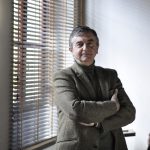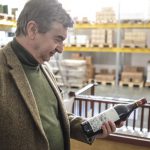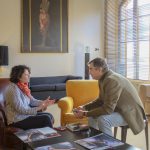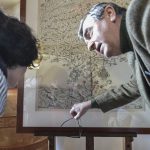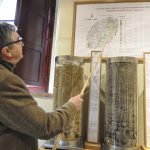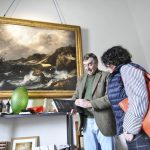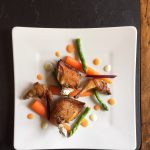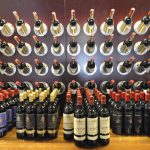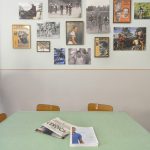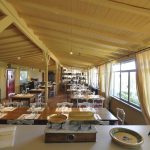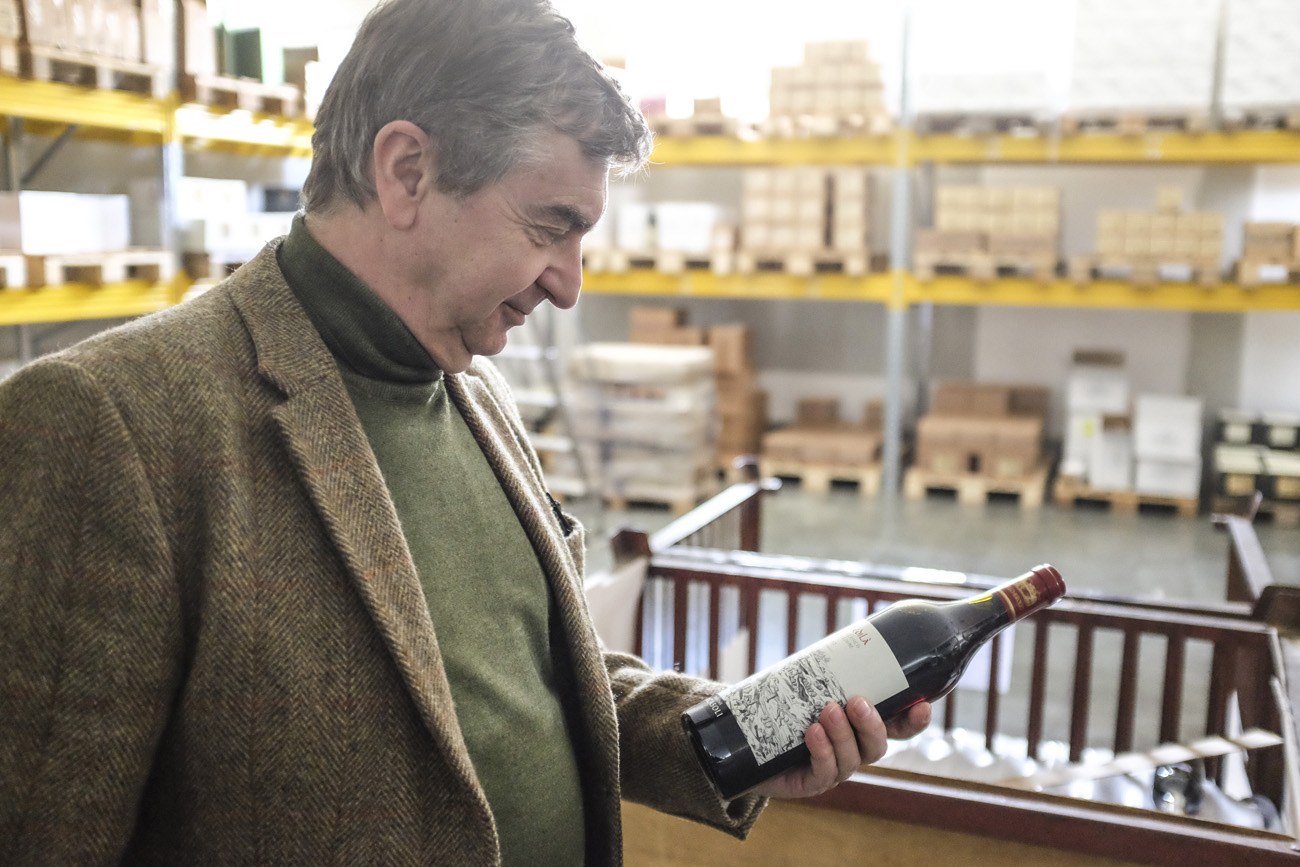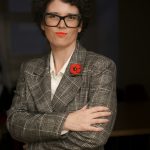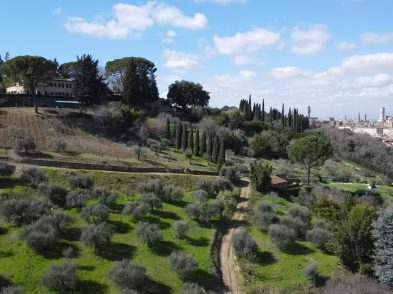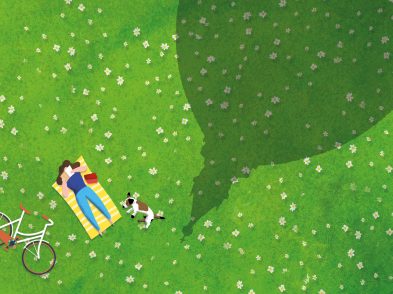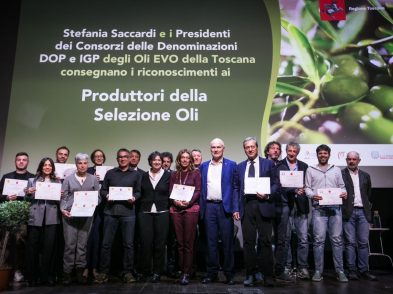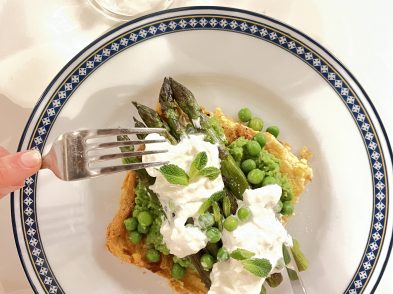As the spring sun filtered in through the modern offices of millennium-old Barone Ricasoli, owner Francesco Ricasoli spoke to The Florentine about the importance of soil for Sangiovese, a lifetime of research and the estate’s hospitality.
- Ph. Marco Badiani
- Ph. Marco Badiani
- Ph. Marco Badiani
- Ph. Marco Badiani
- Ph. Marco Badiani
- Francesco Ricasoli with Helen Farrell | Ph. Marco Badiani
- Ph. Marco Badiani
- Ph. Marco Badiani
- Ph. Marco Badiani
- Ph. Marco Badiani
Helen Farrell: In a 2004 interview with wine magazine Decanter you said that the aim was to relocate your wines at the top. Do you feel that goal has been accomplished?
Francesco Ricasoli: The answer is always the same. The next vintage has to be better than the previous one, so you never stop trying to do your job better.
HF: Your two Gran Selezioni are very different in styles. Is that a deliberate way of showing the winery’s past and present?
FR: It’s a much bigger issue because Brolio is unique, it’s still the largest estate in the appellation. Having said that, it means that we have so many different soils. Being so diverse and so large, the expression of Sangiovese is very different. We are going much more beyond what you have tasted because in-house we have already certified and bottled another two gran selezioni pure Sangiovese, that for marketing and commercial reasons are not going to be released soon. But this is an amazing project that involves really the soil of Brolio and this is the result of more than 12 years of research and experimentation. This is to show how Sangiovese reacts in different soils on the same property. So, of course, they are different.
HF: What stage are you in with the clonal research?
FR: The clonal research is done because two of these biotypes are now included in the catalogue of the Italian grape varieties for producing wine, so at the ministry of agriculture you can check online also. What we have been doing with that, well, that’s almost a lifetime job if you want to do it seriously. In this business there’s a lot of overnight “show and boom” and it’s done, but this’s not true. So we try to make things that are going to last and that are reliable and serious. So, we have been planting some of these two clones in several “parcels”, but for the moment we are not going to make just a wine with those clones.
HF: You also got the very modern bottles, the Albia, and you’ve got the traditional Brolio labels that are aristocratic in appearance. How does the market react to your more contemporary wines?
FR: Albia is a very historical name and in the end it’s not such a fancy bottle. It’s a nice shape and transparent so you can see the colour. There’s the coat of arms on the bottle and it’s more a product that can match the appeal of the younger generation. With the reds we want to deliver a message of consistency, reliability and brand loyalty, although it doesn’t really exist anymore today.
HF: With such a vast estate, I assume you must have microclimates. Are you noticing a change and is it affecting the way you make the wines?
FR: Everybody says that. Probably it is. For example, we had quite cold weather recently.
HF: I saw the photos of the vineyards covered in snow.
FR: Yes, beautiful, but you have to be fast. It melts immediately, so you have to run. If you’re prepared, you’re able to take these kinds of pictures… I think a lot has changed, not only the weather but even viticulture has changed if you consider the higher density, the lower yield that everybody more or less is managing their vines, it already makes a difference. The average alcohol is higher, in some cases too high, and we try to match these kinds of changes. How much it affects the final result, I don’t know, because a lot has changed in the vineyard.
HF: You’ve always been a champion of zonation. Why is zonation so important and why you are an advocate for it?
FR: Shall we call it zoning or zonation? What’s the best term? Anyhow, it’s a great tool to understand better what you have. Therefore, to manage the vineyard in a more tailored way. We call this precision viticulture, so it means that not necessarily do we treat the vineyard, let’s say, just below the castle in the same way we do half a kilometre away on a different soil. In the end it makes a difference. Because you have to put all these things together: it means the grape variety, the soil, the clones, the practices, vinification and aging. If you do it properly in the sense of respecting your land, you might have different “boys” with different personalities. If you have many children, each one of them has a different character. Some will have much stronger difference, others less. But in the end you have more information, you have more knowledge of your family, and therefore you can manage it better. For me, this is a modern approach. We use a tailored meteorological approach with our forecast for just our estate. Can you imagine? It’s a service that is supplied to us. We are in an experimental period but it’s extremely interesting, because it might differ from the lower area of Castelnuovo Berardenga, which is not so far away but it is very different because we have a lot of woods here at the back that affect the wind, temperature and so on. It’s very complex, but precision viticulture is important, all these different methods, techniques and knowledge that altogether help us to respect the origin of a certain Sangiovese, and that makes the difference. That’s why Colledilà {one of Barone Ricasoli’s Gran Selezione wines} has a very specific personality. By the way, it’s also the most sustainable way to work in the vineyard.
HF: The estate vaunts nearly a thousand-year history. As the 32nd Barone Ricasoli, do you feel a responsibility on your shoulders to continue the family name or is it more of a personal vocation at this stage?
FR: It’s not a mission, but I like what I do and I feel privileged, and in many cases I also feel that all this does not belong to me but it belongs to everybody. When I won’t be there anymore this place will go on, so in a certain way there is a responsibility because it’s not the marketing-made last-minute winery, there’s something more here.
HF: You have a very personal approach to what you do with your almost 13,000 followers on Instagram, for instance. Do you miss your former career as a photographer at all?
FR: No, I don’t miss it. Even there has changed so much. I’ve always been a creative person, and you can be creative even in business, and therefore I think that’s my best asset. Then of course I have better people than me for specific things. I’m very bad at selling and marketing, but I have other people to do that. Of course, I know a little bit of everything.
HF: In terms of hospitality, you’ve got the retro-fitted Agribar with its all-Tuscan food and drinks, the more elegant Osteria del Castello restaurant and even a guesthouse. It’s a complete set!
FR: We have a guesthouse that recently we have mostly been using for VIP partners that visit us, but sometimes we rent it out. We were among the first to invent this now almost abused concept of agritourism in the early 1960s. Then I stopped because there was a lot of investment to do, so I decided we had other priorities. It’s a beautiful house that was completely restored a few years ago. Then we have the Osteria and the Agribar that is very successful. We are sponsors of the L’Eroica vintage bike rally, and we have a small bicycle museum. I promised to do L’Eroica the next edition, but I have to exercise!

